
12 Running Tips For Beginners
Posted on 05 Feb, 2019

When I first got into running, I found the amount of information on the sport rather overwhelming. Because I didn't know better, I tried every technique from every article I read. And I signed up for a 10K that was three weeks away. It was a little too much too soon, and the wheels came off. Injuries crept in, new ones each week, and I became so discouraged I almost gave up running for good.
There are probably many who are in the same boat that I was in before, a little lost, splashing around in circles. So I asked myself, "If I could do it all over again, what would I do different?" And I made this list.
1. Get The Right Shoe
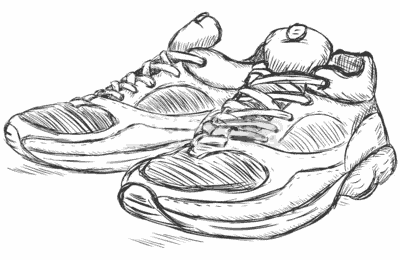 Wearing the right shoe is the key to comfort and injury prevention. But rather than going to just any sports store at the mall, look for one that specializes in running. There they will get you fitted with a shoe to suit your foot type and running style.
Wearing the right shoe is the key to comfort and injury prevention. But rather than going to just any sports store at the mall, look for one that specializes in running. There they will get you fitted with a shoe to suit your foot type and running style.
A sales assistant who knows his stuff will usually recommend a shoe that is one to and one and a half times your shoe size. This is because your feet expand when you run.
2. Sign Up For A Race
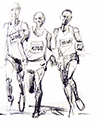 Nothing is more motivating than when you have a goal to work towards. But don’t go overboard. Start with a 5K race and work your way up. And give yourself ample time to prepare.It can be more fun if you find a friend to run it with you. That way, you can train together, race together, and celebrate together. Trust me, there is nothing sweeter than having a friend with you at the finish line, with whom you can share every detail of your run.
Nothing is more motivating than when you have a goal to work towards. But don’t go overboard. Start with a 5K race and work your way up. And give yourself ample time to prepare.It can be more fun if you find a friend to run it with you. That way, you can train together, race together, and celebrate together. Trust me, there is nothing sweeter than having a friend with you at the finish line, with whom you can share every detail of your run.
3. Device A Suitable Training Schedule
 Set small, achievable goals compatible to your current fitness level (and not your target fitness level). Decide what you want to achieve daily, weekly, and monthly. Incorporate rest days into your schedule as well. Always remind yourself that rest and recuperation are part of the process.
Set small, achievable goals compatible to your current fitness level (and not your target fitness level). Decide what you want to achieve daily, weekly, and monthly. Incorporate rest days into your schedule as well. Always remind yourself that rest and recuperation are part of the process.
And before you go overboard with your training, you may want to check out this article: Are you running too much?
4. Start Slow
One of the most common mistakes among novice runners is that they go out too fast, get burnt out, and feel dejected afterwards. When starting out, don’t hesitate if you need to take walk breaks. Over time, as you become fitter, your body will become more efficient at converting oxygen into energy.
Running at a gentler speed not only helps prevent injuries, it builds up endurance. The goal in your initial few months as a runner should be to keep a conversational run pace. In the early stages, it is always better to increase your distance in gradual increments rather than your speed.

5. Eat Right
 Start seeing yourself as an athlete and eat and hydrate accordingly. When you eat clean and consume the right foods, your body will repair itself a lot quicker and you will feel more energetic throughout the day. Drink enough water before you start your workout and don't forget to rehydrate after as well.
Start seeing yourself as an athlete and eat and hydrate accordingly. When you eat clean and consume the right foods, your body will repair itself a lot quicker and you will feel more energetic throughout the day. Drink enough water before you start your workout and don't forget to rehydrate after as well.
6. Cross Train
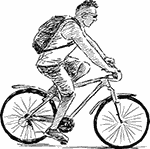 Running is high-impact activity and can cause repetitive stress injury. To ward off injury, and to keep things fresh, supplement your training with exercises such as yoga, pilates, Zumba, biking, inline skating or swimming.
Running is high-impact activity and can cause repetitive stress injury. To ward off injury, and to keep things fresh, supplement your training with exercises such as yoga, pilates, Zumba, biking, inline skating or swimming.
On the days that you do run, switch it up a little by varying your route, your speed and the terrain you run on.
7. Shorten Your Stride
 One of the common injuries sustained by new runners is when they over reach. In running, the body is most susceptible to injury when your joints and ligaments are extended to the limit.
One of the common injuries sustained by new runners is when they over reach. In running, the body is most susceptible to injury when your joints and ligaments are extended to the limit.
If you are new to running, it is best to keep your body as compact as possible. By this I don’t mean curl up tight as a ball. Stay loose, but instead of bounding through your run, shorten your stride. This allows you to minimize impact as well as maintain greater control over your body.
8. Breathe Right
 Many runners, even the seasoned ones, think that it is best to only breathe through your nose, that breathing through your mouth equates to panting. When running, your body needs as much oxygen it can get. So nose, mouth, gills… use ‘em all.
Many runners, even the seasoned ones, think that it is best to only breathe through your nose, that breathing through your mouth equates to panting. When running, your body needs as much oxygen it can get. So nose, mouth, gills… use ‘em all.
For more on breathing techniques for runners, read: Breathing Tips For Running That Could Change Your Life
9. Warm Down
 We won’t tell you to warm up because you already know that. But why are warm downs so important?
We won’t tell you to warm up because you already know that. But why are warm downs so important?
During exercise, your heart beats harder and faster to supply blood to the working muscles. When the oxygen and nutrients are used up, your muscles push the blood back to the heart to get re-oxygenated and re-nourished.
At the end of physical activity, the muscles stops dialing in for more fuel. The heart slows and with it the force that pushes blood and waste products like lactic acids from the muscles. This process is often referred to as "blood pooling" and can cause swelling and pain.
A proper warm down keeps your blood circulating. This flushes your muscles of waste products, and brings fresh oxygen and nutrients to your muscles for rejuvenation.
10. Run With A Partner
 It is good to run alone because you have full control over your pace and distance. You can also take breaks when you really need one without feeling bad about it.
It is good to run alone because you have full control over your pace and distance. You can also take breaks when you really need one without feeling bad about it.
But while there are many advantages to running solo, running in the company of another has many advantages. It helps beat the boredom, is safer and motivates you to stick with your routine. As you are drawing up your running schedule, it is always nice to fit in at least one run with a friend each week.
11. Do Away With The Gadgets
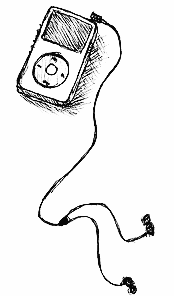 There will be many who will disagree with this, but it is best to run without any gadgetry – iPod, GPS, etc. We believe this for a number of reasons. Firstly, running outside can be risky and it is important that you have your full attention on your surroundings; listen for cars and cyclists, watch for potholes and obstructions.
There will be many who will disagree with this, but it is best to run without any gadgetry – iPod, GPS, etc. We believe this for a number of reasons. Firstly, running outside can be risky and it is important that you have your full attention on your surroundings; listen for cars and cyclists, watch for potholes and obstructions.
Also, when your mind is focused on keeping in step with your music or when you’re trying to keep pace with your Garmin, you sometimes forget to listen to what your body is telling you. This can lead to injury.
Listen. Listen closely and you should be able to tell if it is merely discomfort you are experiencing, or if you’re on the onset of of injury. Nip that nibble before it turns into a shark bite.
12. Borrow Your Neighbor’s Mean Dog
 To improve your speed, there is no better way than to let yourself be chased by an angry dog.
To improve your speed, there is no better way than to let yourself be chased by an angry dog.
I was just yanking your chain with the comment above. What I was really trying to get at is, don’t listen to everything other runners tell you. Each of us is unique, and what works for one doesn’t for another. Listen to what your body tells you, because you are your own best teacher. And always remember to have fun. Lastly, welcome to the community.
Photo Credits
Must-Read Books For Runners

by Peter Magill


by Brad Hudson

by Jeff Horowitz

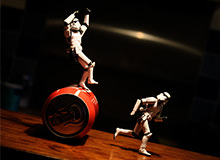 Jedi Checklist Before Training For Your Next Race
Jedi Checklist Before Training For Your Next Race The Best Way To Tie Your Running Shoes
The Best Way To Tie Your Running Shoes Caffeine Exposed - Interesting Facts About Caffeine You Never Knew
Caffeine Exposed - Interesting Facts About Caffeine You Never Knew 14 Tips For Starting Your Morning Off Right
14 Tips For Starting Your Morning Off Right










